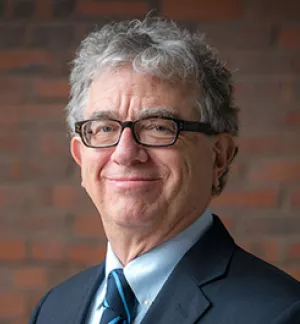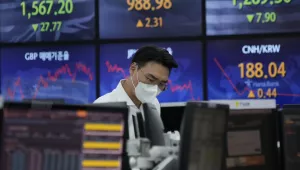It is time for the Managing Director of the International Monetary Fund to come from an emerging market country. But that has been said often before. Whining about the injustice of the 65-year duopoly under which the IMF MD comes from Europe and the World Bank President comes from the US won’t change anything. Only if emerging market countries were to unify quickly behind a single strong candidate would they have a shot at the post. They are evidently too fragmented even to make an effort to come together in this way. Thus the job will probably go to a European yet again.
Why should the person come from the South instead of Europe? After all, the oft-repeated principle that the IMF Managing Director should be chosen on merit rather than nationality need not necessarily mean a departure from the past practice of choosing Europeans. Europe of course has some well-qualified candidates. Christine Lagarde is very impressive and capable (though I would ideally have preferred someone with economics training for this job rather than a lawyer).
But the proposition that the ongoing sovereign debt troubles in Europe’s periphery are a reason to appoint a European is wrong. Ms. Lagarde herself seems to acknowledge this. If anything, someone without a stake in Europe might be better situated to deal with the Greeks and the others.
The important point is that Europe has by now lost its implicit claim to be the best source of serious sober adults with the experience required to run the world monetary system. There may have been a time when the adult-child metaphor had a kernel of truth. In the 1980s, for example, the Fund was run by highly capable Managing Directors from France, during a period when huge budget deficits and even hyperinflations ran wild in the developing world. But that time is past.
There are three respects in which Europe can no longer claim to be the special seat of wisdom and responsibility. In the first place, many of the emerging market governments have done better jobs running their economies over the last decade than has Europe. I refer in particular to excessive debts that many European countries accumulated during the last expansion, culminating in the mis-managed sovereign debt crisis of the last year or two. In the second place the Europeans now have three strikes in a row in choosing Managing Directors for the IMF: Each of the last three MDs resigned before the end of his term. True, neither of Dominique Strauss-Kahn’s two predecessors left in the sort of scandal that he faces. But both of their resignations revealed that the men in question had not been taking the job seriously enough. (Incidentally, over the last decade the US has screwed up as badly as Europe: enacting fiscally reckless policies during the last economic expansion and installing an inappropriate president of the World Bank in 2005.)
Thirdly, and most importantly, it so happens that many of the best candidates this time are not from Europe nor from the United States, but rather from emerging markets. So the merit criterion happens to coincide well with the much-recognized but never-honored need to give emerging market countries more weight in the governance of the IMF, in line with their new weight in the world economy.
Indeed, it is remarkable how many excellent candidates there are now from emerging markets. That is not to say that everyone put forward by his or her government is in truth a good prospect. When Turkey’s leaders say they have at least ten good candidates, they illustrate that politicians often don’t know what qualifications are required for the job. (No country has ten good candidates.)
I count ten emerging market individuals who are unusually well-qualified for the post. Seven of them appear to be live candidates. They come from every part of the globe.
• Agustin Carstens, current governor of Mexico’s central bank, is described as the leading prospect among the group – because his government lost no time nominating him. He indeed would be good. And has IMF experience, which is desirable whatever the critics say. But even Latin America is not unifying behind him (for example Brazil has not been supportive), let alone other developing countries. He may be perceived as too close to the US by developing countries to get their support – and also by the Americans who might worry that having him as head of the IMF would undermine their claim to the World Bank presidency.
• Arminio Fraga, former governor of Brazil’s central bank, is another good candidate, with extensive experience. But, again, it is not clear that governments even within Latin America are prepared to unify behind someone from the region’s largest country. Perhaps as a general matter any candidate who is identified with a large regional power is more likely to provoke jealousy than solidarity from the neighbors. Mexico is unlikely to support a candidate from Brazil and vice versa. India is unlikely to support a candidate from China, and vice versa.
• Tharman Shanmugaratnam is my favorite candidate. He has excelled as Singapore’s Finance Minister and was just promoted to Deputy Prime Minister. In March he was chosen to head the International Monetary and Financial Committee, the panel of ministers that advise the IMF on strategy twice a year. (The incumbent was forced to leave in a hurry, because he had been Egypt’s finance minister.) I can attest to Shanmugaratnam’s intelligence. He was my student at Harvard in 1988-89. (He caught a number of errors in a draft of my textbook.) He also has great political skills. I think he is the sort of candidate behind whom emerging market countries might be able to unify; they need not feel threatened by Singapore.
• Sri Mulyani Indrawati is another candidate from Southeast Asia with all the right credentials. She became one of the three Managing Directors of the World Bank last year, after apparently having been forced out as Indonesia’s Finance Minister for doing too good a job. Incidentally, she is young and could be a good candidate next time around too (as could the first three).
• Leszek Balcerowicz (Poland’s former Finance Minister, deputy PM, central bank governor, and Mr. Shock Therapy) is a credible candidate. Poland would be a compromise with respect to nationality, because it is both an EU country and an emerging market.
• Trevor Manuel was a great success as South African Finance Minister, and it would be good to make better use of him than the current government seems to be doing.
• Zhu Min, former Deputy Governor of the People’s Bank of China and currently a high-ranking IMF official, is another obvious candidate.
I can think of at least three others who would also do a great job, but are apparently not as actively in contention.
• Kemal Dervis (Turkey’s former Minister of Economic Affairs) would have been excellent, but he took himself out of the running early.
• I thought they should have picked Stanley Fischer for Managing Director in 2000. A stellar economist and manager, he was Deputy Managing Director of the Fund at the time. It would have been a first step toward accommodating the legitimate desire of developing countries to break the monopoly of Europe-born and US-born officials on the top jobs in the IMF and World Bank, as Fischer was born in Zambia and had the support of a surprising number of African countries. (Disclosure: He was a professor of mine at MIT in the 1970s.) The US was not prepared to oppose Europe in support of his candidacy because in practice it would have meant having to give up the US claim on the World Bank presidency. But he would have been the best person for the job, and still is.
• Montek Ahluwalia, the last of the ten, is Deputy Chairman of India’s Planning Commission, a position that is far more important than it sounds. But there is a presumption that the candidate should not be over 65, which would let him out if followed (and Fischer).
June 10 is the deadline for nominations. Any of the ten would do a good job. Personally, I would urge emerging market governments to unite behind Shanmugaratnam. More likely, they will remain disunited. And then it will go to Lagarde.
Comments can be posted on the sites of Project Syndicate (which holds the copyright to the op-ed), the East Asia Forum, or SeekingAlpha.
.
[Crosstalk debate, "What the Fund?" May 30.]
Frankel, Jeffrey. “The IMF Head Can’t Come from Emerging Markets Unless They Get Behind a Candidate.” May 27, 2011



